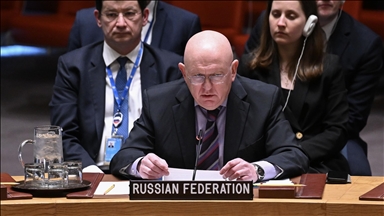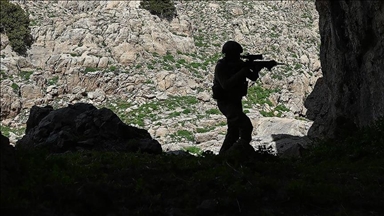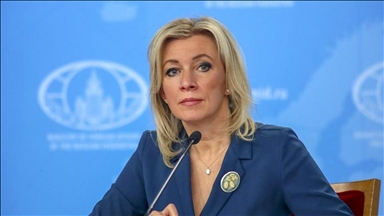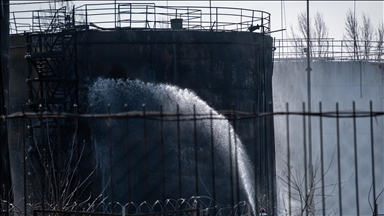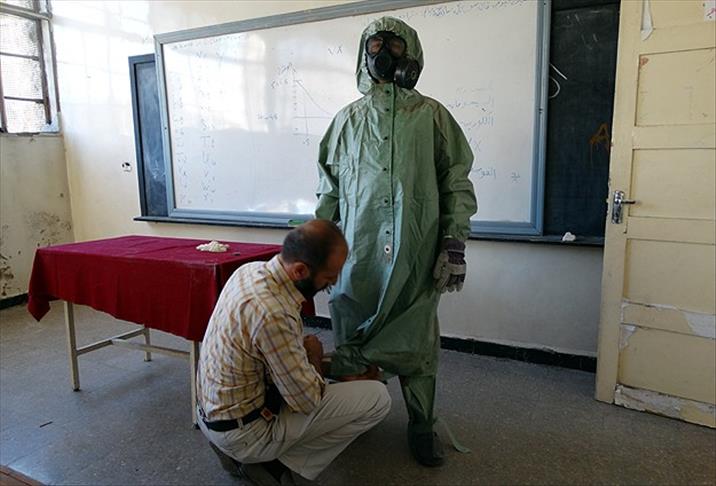
ANKARA - By Sinan Polat and Yusuf Hatip
Experts have the opinion that a possible military strike against Assad's limited nuclear reactors in Syria will not cause a serious nuclear contamination as claimed by Russia.
Russia claimed that a military strike on Syria could lead to a nuclear catastrophe if a missile were to hit a reactor containing radioactive uranium.
However the experts of SIPRI, which is one of the world's leading research organizations, think that there is not a nuclear reactor in Syria apart from a little tiny reactor used for scientific researches in the desert of Deir al Haja.
The experts are also of the same mind that United States would not hit this reactor, or the damage would be limited even if the US hit.
"The reactor located in the desert at Deir al Hajar, not in suburbs"
Robert Kelley, Associated Senior Research Fellow within Stockholm International Peace Research Institute (SIPRI) Nuclear Weapons Project, Arms Control and Non-proliferation Programme, said that Syria had a tiny research reactor that was used for simple physics and medical experiments, it could not be called "a nuclear program.”
Stating that there was nothing else in the country that could be called a nuclear program, Kelley said "There is a little tiny nuclear reactor in Syria. It is located in the desert at Deir al Hajar, 15 km from the Damascus city limit. It is not in the suburbs as some would tell you. That is not true."
Kelley, noting that Syria had zero nuclear capability in the sense it had zero nuclear weapons activity (and probably never had any) and it had no interest in nuclear power, said:
"As I noted, they are interested in medical isotopes. Almost every modern hospital, including in Turkey, uses “nuclear techniques” like MRI and isotope scans, everywhere in the world. It would be a gross mischaracterization to call these hospitals “nuclear programs” or “nuclear capabilities”. They are not military in any way and have zero contribution to military programs."
It could not be a “collateral damage”
Ian Anthony, a research fellow within SIPRI, said that the reactor was too small to melt down so it would just sit there covered up.
"It is ten thousand times smaller than Fukushima and does not have any of the cooling or shielding issues related to Japan. It has very little radioactivity because it is so small so even a direct hit would disperse almost no radiation" said Anthony.
Stating that the reactor was far too small to even begin to build a bomb out of its uranium fuel, Anthony said "If the reactor building were attacked, it could not be an accident or “collateral damage” because it is in the middle of nowhere and there are no military targets nearby."
"Syria has not fissile material stockpiles"
Tom Collina, an expert in Arms Control Association, said Syria currently did not possess nuclear weapons or fissile material stockpiles that could be utilized for a nuclear weapons program, although it had long publicly expressed interest in developing a nuclear power program and covertly pursued building a reactor.
Noting that Syria did possess a Chinese supplied research reactor that was currently under International Atomic Energy Agency (IAEA) safeguards, Anthony said "I do not think the US would target the research reactor. If it is destroyed by accident, yes there is a chance of contamination but not mass casualties" referring to a possibility of nuclear contamination or mass casualties due to exposure during a possible US or NATO attack.
Syria's nuclear capacity
According to the Atomic Energy Commission of Syria, the country is currently exploring the possibility of using nuclear power as part of national energy strategy.
This might include building a nuclear power plant to be operational at the earliest in 2020.
Syria is currently in what is called a "pre-planning" phase. This means that studies are being made, together with the International Atomic Energy Agency, of what would be required to make such a plan operational.
Today, Syria does not have any nuclear power plant. It has one research reactor that has been operational since 1996. This reactor is used in teaching and training Syrian scientists.
Israel bombed a facility in Syria
There is one major ambiguity around the Syrian nuclear programme.
In September 2007 Israel bombed a facility in Syria, claiming it to be a nuclear reactor.
Since May 2008, Syria has denied that the destroyed building was a nuclear reactor, claiming that it was a non-nuclear military installation.
Since 2008 the IAEA has been trying to understand the background to this event, what happened, and whether there has been any violation of the bilateral safeguards agreement between Syria and the IAEA.
IAEA experts visited the site in June 2008, and their technical report led to a finding that it was "very likely" that the building destroyed was a nuclear reactor that should have been declared to the Agency.
englishnews@aa.com.tr
Anadolu Agency website contains only a portion of the news stories offered to subscribers in the AA News Broadcasting System (HAS), and in summarized form. Please contact us for subscription options.


